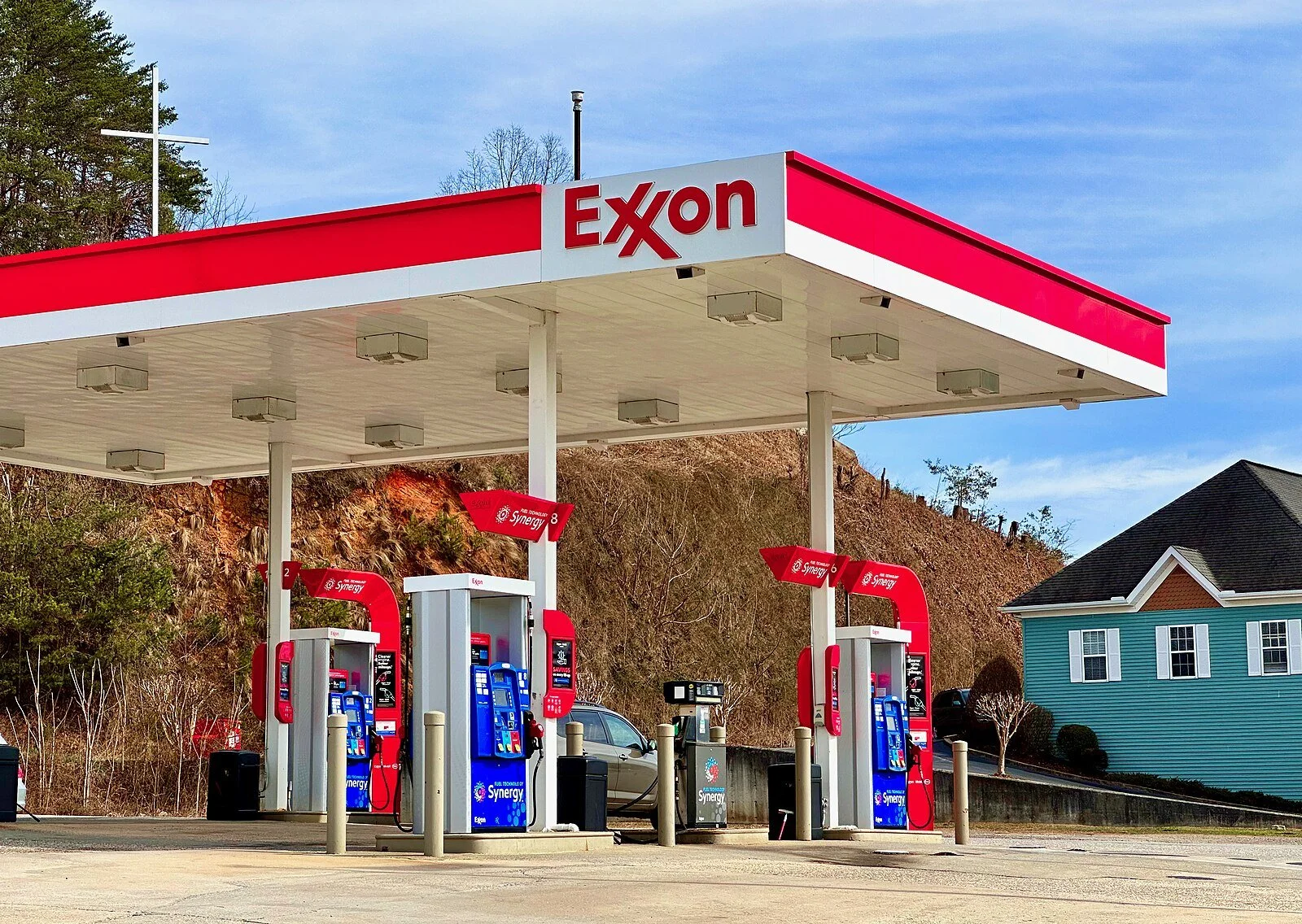Land of the Free: What it really means to an oil giant like ExxonMobil
ExxonMobil has filed a lawsuit against the State of California (Wikimedia Commons)
In a shocking decision that redefines the boundaries of regulation, ExxonMobil filed a federal lawsuit against the State of California on October 24. The oil giant argues that recent climate laws issued in the Golden State violate its First Amendment rights. Senate Bill 253, the Climate Corporate Data Accountability Act, and Senate Bill 261, the Climate-Related Financial Disclosures Act, have been challenged as Exxon claims climate disclosure mandates unlawfully compel it to relay information. Countering, the state of California asserts that transparency is not a matter of threatening ideology, but of accountability, stating that these laws are necessary for raising awareness of the financial and environmental risks of climate change.
At the core of the dispute are two laws that together make up one of the most sweeping state efforts to increase corporate transparency. Under SB 253, all companies operating in California that generate over $1 billion of annual revenue must disclose their full scope of greenhouse gas emissions, from direct production output (called Scope 1) to bought electricity (Scope 2) and emissions from consumption (Scope 3). SB 261 requires firms with annual revenues over $500 million to publish a thorough analysis of the effects climate change has on their business operations and long term risks. Exxon argues the state’s claimed motives are just a front and are really using the laws as political tools designed to push their climate agenda. By forcing businesses to follow California’s chosen reporting system–the Greenhouse Gas Protocol–instead of the oil industry’s own IPIECA framework, Exxon believes the state is essentially taking sides in the debate over who bears responsibility for climate change.
In its complaint, Exxon further claims that the State is overstepping its constitutional authority. Because Exxon operations encompass a much larger scale than just California, the company says it should not be responsible to report company wide emissions data when it isn’t required across all markets they cater to. Exxon additionally argues that California’s rules clash with federal securities law, creating overlapping and possibly conflicting admission requirements. State officials counter that global corporations can’t separate their climate footprint from the economies they profit from. In their view, the goal isn’t to penalize companies but to shed light on their impact–giving investors and consumers the information they need to understand the existential risks behind everyday business decisions.
At the center of this courtroom battle lies a larger question about what it really means to speak, and to be held accountable, in an age defined by climate change. ExxonMobil argues that California’s new disclosure laws amount to “compelled speech,” transforming a once neutral regulation into an enforced political statement. State officials, joined by environmental advocates, are pushing back, saying the rules simply require companies to report facts, not endorse beliefs. Legal scholars say that regulators have long been granted broad authority to require corporate disclosures when those disclosures serve to protect investors or the public. Still, Exxon’s fight for free speech protections marks a turning point, one that could redefine how corporations challenge climate regulation across the country.
If Exxon triumphs, the ruling could suspend or even reverse climate-disclosure efforts well beyond California’s borders. It would compromise states’ power to demand transparency from major emitters and could also ripple into federal policy–especially the U.S. Securities and Exchange Commission’s proposed climate-risk disclosure rules, which already face legal pushback. A victory for California, on the other hand, could inspire other states to follow suit, treating climate transparency not as a partisan stance but as a basic expectation of responsible business.
The case will push the limits of free speech, state power, and environmental responsibility. California’s rules are set to begin in 2026 for direct emissions and in 2027 for full supply chain reporting, so the court’s decision could determine whether those deadlines prevail. Most experts expect the case, now before the U.S. District Court for the Eastern District of California, to climb through the appeals process, perhaps even to the U.S. Supreme Court, where judges would decide whether mandatory climate reporting crosses the constitutional line between fact and forced ideology.
Regardless of the ultimate decision, the case carries weight far beyond Exxon. It represents a growing clash between environmental management and corporate independence–a collision between ecological urgency and the legal foundations of American commerce. Whether this lawsuit fades into legal history or defines it will depend on where the courts establish the line between transparency and belief. In an era when the story of climate change is unfolding not only in data and droughts but in legal arguments, ExxonMobil v. California stresses one truth: the fight over accountability is, itself, part of the climate story.

